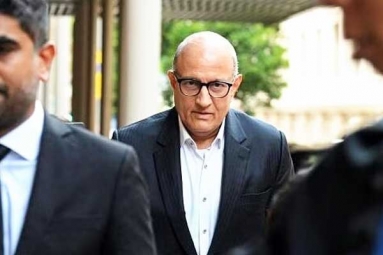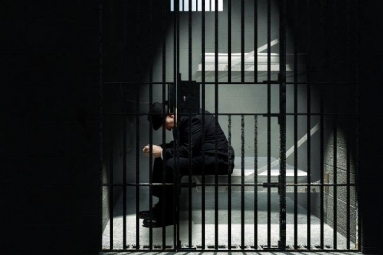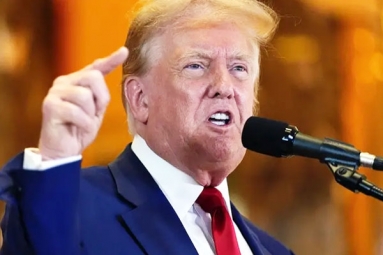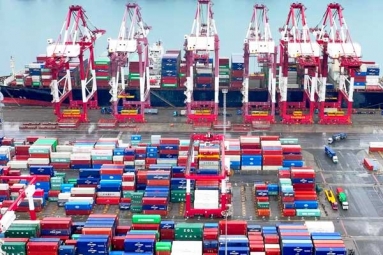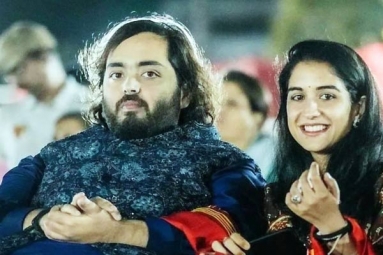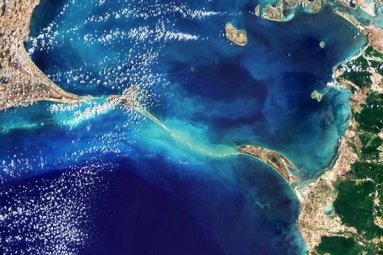
A 40-minute drive south-west of Budapest, Felcsut is a typical Hungarian village on the surface, its cottages strung out neatly along either side of the long main street. Untypical of the Hungarian countryside, however, is the frenzy of building activity here. Private security guards watch over armies of men in hard hats, bulldozers, and cranes toiling in the sweltering heat to complete a fancy football stadium dwarfing the pretty cottage gardens and vegetable patches.
Then there are half a dozen practice pitches plus a "football academy" named after Hungary's soccer saint, Ferenc Puskás, the Real Madrid maestro of the 1960s.
The village of 1,800 seems a strange location for such an investment. But Felcsút is also home to Viktor Orbán, Hungary's powerful prime minister who is a football fanatic and has changed the law to facilitate such developments.
Megalomania? Vanity project? Or just another aspect of the dizzying pace of change in Hungary since Orbán and his Fidesz party won a landslide in elections three years ago?
Orbán has given Hungary a new constitution and hundreds of new laws, sometimes reckoned to amount to one a day, including changes to the tax code making business investment in, and sponsorship of sports, tax-deductible.
The result has been a bonanza for the village where he grew up and keeps a family house. According to two independent Hungarian media investigations, businesses donated some 6bn forints (£17m) to football projects in Hungary last year. Staggeringly, almost half of that total flowed to Orbán's village.
The bounty suggests that Hungary's businessmen are very eager to please their strongman prime minister who enjoys an electoral mandate that other leaders in Europe can only dream about, but is also broadly seen to be abusing that mandate to establish a system perpetuating his power.
"There is a very clear tendency of concentrating power and deciding everything on his own," says Péter Molnár, a civil rights activist and former close associate of Orbán. "They're very seriously weakening democracy in Hungary. He has changed things to concentrate power in his hands."
But the Hungarian leader is not alone in eastern and southern Europe, where democratically elected populist strongmen increasingly dominate, deploying the power of the state and a battery of instruments of intimidation to crush dissent, demonise opposition, tame the media and tailor the system to their ends.
In Russia and Turkey, the two big former imperial powers that bracket Europe to the east and south, president Vladimir Putin and prime minister Recep Tayyip Erdoğan lash out aggressively at opponents, trying and jailing opposition figures and routinely resorting to violence to crush peaceful protest. They are both popular and utterly dominate their national politics.
In Romania last year, the prime minister, Victor Ponta, attempted what was widely seen as an abortive constitutional coup to unseat and impeach his rival and enemy, president Traian Basescu. He failed.
In Prague, president Milos Zeman has sought to exploit a government crisis to boost his power. The Czech Republic is a parliamentary democracy under cabinet government, but when the government collapsed under the weight of a corruption scandal in June, Zeman moved to appoint a close ally as a technocratic prime minister.
Parliament has revolted, voting against Zeman in a confidence vote last week, and on Tuesday the cabinet resigned, clearing the way for early elections which could resolve the deadlock.
With the exception of Russia, where democratic standards are far weaker, all these power-hungry leaders have been democratically elected and are careful to operate within the letter of the law. "I'm sure he believes there should be fair and free elections, but the system he's building now is working against those principles," says Ákos Maróy, an IT specialist and freedom of information campaigner at Atlatszo, of Orbán's tactics.
"Orbán is really world class at doing things in a way that is, or at least looks, formally legal when often it is obvious they are abusing the law," says Molnár, who shared student rooms with Orbán as law students in the 1980s and was a co-founder of Fidesz with Orbán in 1988, a year before the collapse of communism across the region. He quit Fidesz in the 1990s.
While the different countries vary hugely in their politics, the strongmen leaders tend to exhibit strikingly similar characteristics and often resort to identical tactics. Orbán, Erdoğan, and Putin head political parties or elites very much focused on and dominated by the leader.
Molnár describes Orbán's approach to policymaking as follows: "There might be some very limited discussion, but I'm telling you the result, and I'm doing it for the good of my country."
Like Putin and Erdoğan, Orbán also views politics as a zero sum game where the winner takes all. Opponents are reviled as extremists and traitors. Whether genuinely believed or used simply as a populist tactic, paranoia about foreign plots is regularly invoked to disarm critics. Nationalist rhetoric is used to brand opponents as unpatriotic puppets of foreign powers.
"There is an anti-Hungarian campaign," says Enikő Győri, the minister for European affairs. "Foreign businesses are going to Brussels to complain about new taxes. Some in Europe say we're reducing democracy. It's not true. But the new constitution, plus the speed of reform and legislation, is seen as politically incorrect in Europe. Our critics say stupid things and that provokes anti-EU sentiment."
She sees Orbán as a visionary leader bent on restoring Hungary to regional prominence and arresting a long process of national decline: "No one wants to reshape the borders in Europe, but we want to survive. The long-term vision is that the Hungarian people has to survive, and for that you need more children.
"The population is declining. It's awful. It's frightening. If you want to survive in the Carpathian basin, if you want these people to remain, we maybe need more Hungarians. You need to encourage people that it's a good thing."
"Crisis management needs fast, decisive action. That's exactly what our leader is doing," says Balázs Orbán, a constitutional lawyer at the pro-government thinktank, Szazadveg. "He's a role model for others in eastern Europe. He's capable of many things that other European leaders couldn't do."
With a two-thirds majority and the Hungarian parliament effectively reduced to a rubber stamp for the prime minister's will, Orbán can do whatever he wants. But his antics have brought him in conflict with Brussels. The latest spat involves a highly critical and detailed report from the European parliament demanding a special EU monitoring system to scrutinise Orbán's actions.
Events in Hungary have caused Berlin and other EU capitals to call for a EU system of monitoring democracy in the 28 member states, with penalties for perceived transgressions. It appears that such calls will gain traction in Brussels this year.
A tone of authoritarian nationalism pervades the discourse of the Orbán government, according to critics. A Fidesz declaration after Orbán's landslide interpreted his mandate as "a new social contract" for the country.
"Hungarians decided to create a new system, the national co-operation system… It is shared by every Hungarian inside or outside the country… It is not only an opportunity, but a requirement for every Hungarian," with the parliament and government "obliged by the Hungarian nation to take the helm in this endeavour".
Molnár describes such language as "Orwellian, a total lie," a throwback to the language of the 1930s. Orbán's government ordered the declaration to be hung prominently in every public building.
Outside parliament on the banks of the Danube in Budapest, the large park area that has frequently been the site of political protests has also been cordoned off and turned into a giant building site. Under Orbán, the site is being redeveloped into a replica of how it looked in the 1930s under the authoritarian regime of Admiral Miklos Horthy.
There has been no opposition of note, in contrast to Turkey, where last month's protests, crushed by teargas and water cannon, were sparked by the prime minister's determination to destroy an Istanbul park also to build a 1930s replica of a military barracks and mosque.
If Orbán, Erdoğan and others share an intolerance of dissent and an aversion to pluralism, these tendencies are most sharply felt in the media. The instruments of control range from the legal framework, regulators packed with political cronies, state media homogenisation, private media in the hands of loyal businessmen and oligarchs who depend on government contracts for their wealth and discourage critical reporting or holding policymakers to account.
Orbán brought in a controversial media law that centralised and homogenised all news production for state television, radio, and the national news agency and appointed all five members of the regulatory media council.
"They've succeeded in domesticating and chilling the media. You don't get jailed or shot like in Russia. But you lose your job," says Bodoky.
"Censorship is internalised," adds his colleague, Maróy. "People are protecting their livelihoods, behaving as they're expected to. That's what is happening."
Other instruments commonly wielded to coerce loyalty and punish dissidence include the selective use of tax inspectors to intimidate business leaders and individuals, and the awarding of government contracts and licenses.
Orbán, for example, brought in a new system of tobacco sales licensing, destroying around 40,000 small family businesses then reissuing some 5,000 licences in an operation that critics and independent journalists say was used to reward cronies and buy loyalty to the government.
He is also giving citizenship and the right to vote to hundreds of thousands of Hungarians outside the country. They will be able to vote for the first time in general elections next April. The expectation is they will vote for the party that gave them that right, helping Orbán to another term.
Gordon Bajnai, an opposition leader and former prime minister, described the political project in Hungary last week as the building of "Orbánistan", citing the Felcsút football stadium as a typical example.
Tamás Bodoky, an investigative journalist who runs the freedom of information website, Atlatszo, describes the Felcsút football project as "pure feudalism", somehow symptomatic of the new climate being wrought by Orbán in Hungary.
"He is a very clever and a very authoritarian person. He's a control freak," says Bodoky. "He knows very well how the state works. He's putting all his officers in all key positions and has no respect for independent institutions that can control or limit his power."
But Orbán's supporters – and he remains far ahead in the opinion polls – insist that the leader is simply daring to "deviate" from the European mainstream and put his country first.
They are confident that Hungary and Orbán, who utterly dominates national politics, are winning. Others are less sure. "It's a really tragic story," says Molnár.
"It's a drama of how a very talented political person is being destroyed by his own hubris. I think he's lost."




